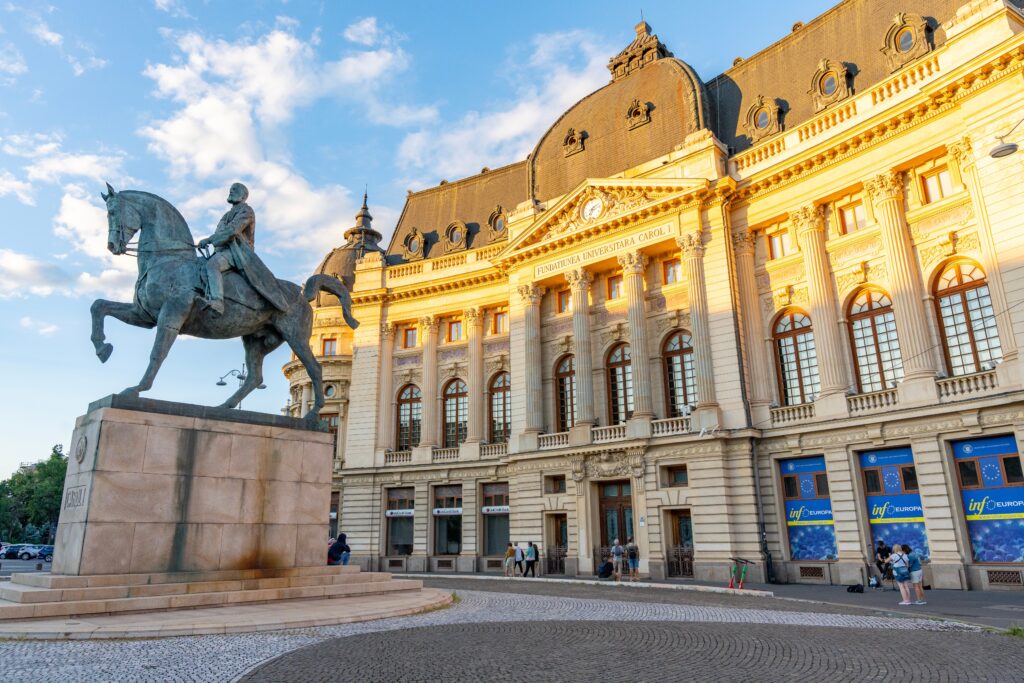Romania’s constitutional court has annulled the first round of the presidential election, citing evidence of external interference. This unprecedented decision, following declassified intelligence reports, has canceled the election results and necessitated a full re-run.
The annulment underscores growing concerns about foreign influence on Romania’s democracy, with implications for its geopolitical stance and future leadership.
Alleged Russian Meddling in Romanian Politics
President Klaus Iohannis recently declassified intelligence revealing an alleged Russian campaign to influence the election. The report detailed how Moscow orchestrated a coordinated effort using thousands of accounts on platforms like TikTok and Telegram. Algorithms and paid promotions allegedly boosted far-right candidate Călin Georgescu, who previously polled in single digits.
Georgescu, an outspoken admirer of Vladimir Putin, campaigned on ending Romania’s support for Ukraine amidst Russia’s invasion. Despite declaring no campaign spending, he unexpectedly led the first-round vote on November 24, shocking the EU and NATO-member nation.
The intelligence report labeled these efforts as “aggressive hybrid Russian attacks.” TikTok denied giving Georgescu preferential treatment, and Moscow dismissed the allegations. Nonetheless, the constitutional court’s ruling nullified the results and canceled the presidential runoff initially scheduled for Sunday. Voting had already begun in Romanian polling stations abroad.
Public and Political Reactions
Prime Minister Marcel Ciolacu praised the court’s decision, calling it a necessary step to safeguard Romania’s democracy. He stated that the declassified intelligence showed the election results had been “blatantly distorted” by foreign interference.
However, Elena Lasconi, Georgescu’s pro-European opponent, criticized the annulment as “illegal and amoral.” She argued it undermined democracy and voter rights.
The ruling sparked widespread protests in Bucharest, with thousands gathering to demand transparency and fairness. In freezing temperatures, activists, artists, and civic leaders rallied in support of democracy, chanting slogans like “Europe!” and “No Fascism.” Demonstrators carried banners reading “Democracy is in danger” and “Our children will be free.”
Rising Far-Right Influence and Broader Implications
Georgescu’s rise reflects a growing far-right movement in Romania. In last week’s parliamentary elections, far-right parties made significant gains, though the ruling pro-European Social Democrats remain the largest faction. They are expected to form a coalition government.
Analysts expressed concern that a Georgescu presidency could pull Romania away from its traditional pro-Western alignment. His leadership might place the country alongside other EU nations like Hungary and Slovakia, where far-right, Russia-friendly politicians hold sway.
An AtlasIntel poll conducted after the declassification of interference reports showed Lasconi narrowly leading Georgescu, 48.6% to 46.4%. These numbers highlight Romania’s political division, fueled by discontent over inflation and the ongoing war in Ukraine.
Future Challenges
Romania’s presidency, though largely ceremonial, carries significant moral authority and influences foreign policy. The president also appoints the prime minister, a critical role as the country grapples with its fragmented parliament.
Meanwhile, prosecutors have launched a criminal investigation into Georgescu for alleged money laundering, further complicating his political standing.
Romania now faces the task of restoring faith in its democratic system. With a full election re-run on the horizon, the nation must reaffirm its commitment to EU and NATO principles while countering external interference.


